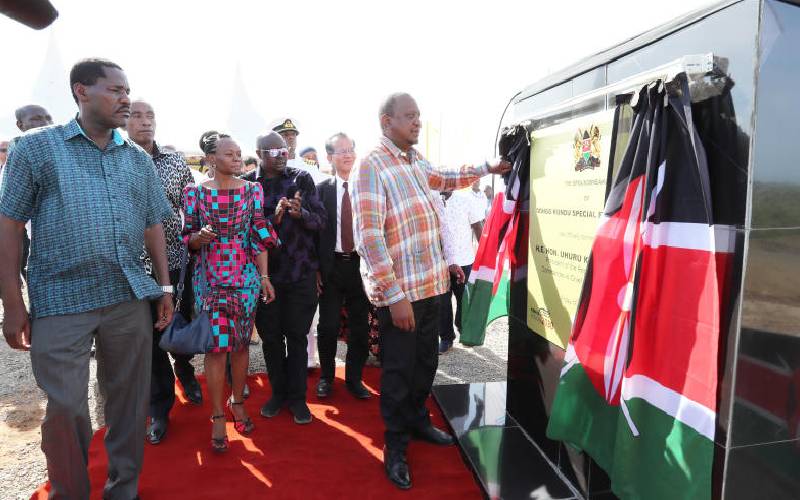×
The Standard e-Paper
Fearless, Trusted News

President Uhuru Kenyatta unveils a plaque during the official ground breaking ceremony of the Dongo Kundu Special Economic Zone at Dongo Kundu in Mombasa County in October, 2019. [Maarufu Mohamed, Standard]
We can finally see a light at the end of the tunnel for the long-awaited special economic zone with the launch of Dongo Kundu bypass. If well implemented, this will change the economic landscape for the Coast, and Kenya in general.